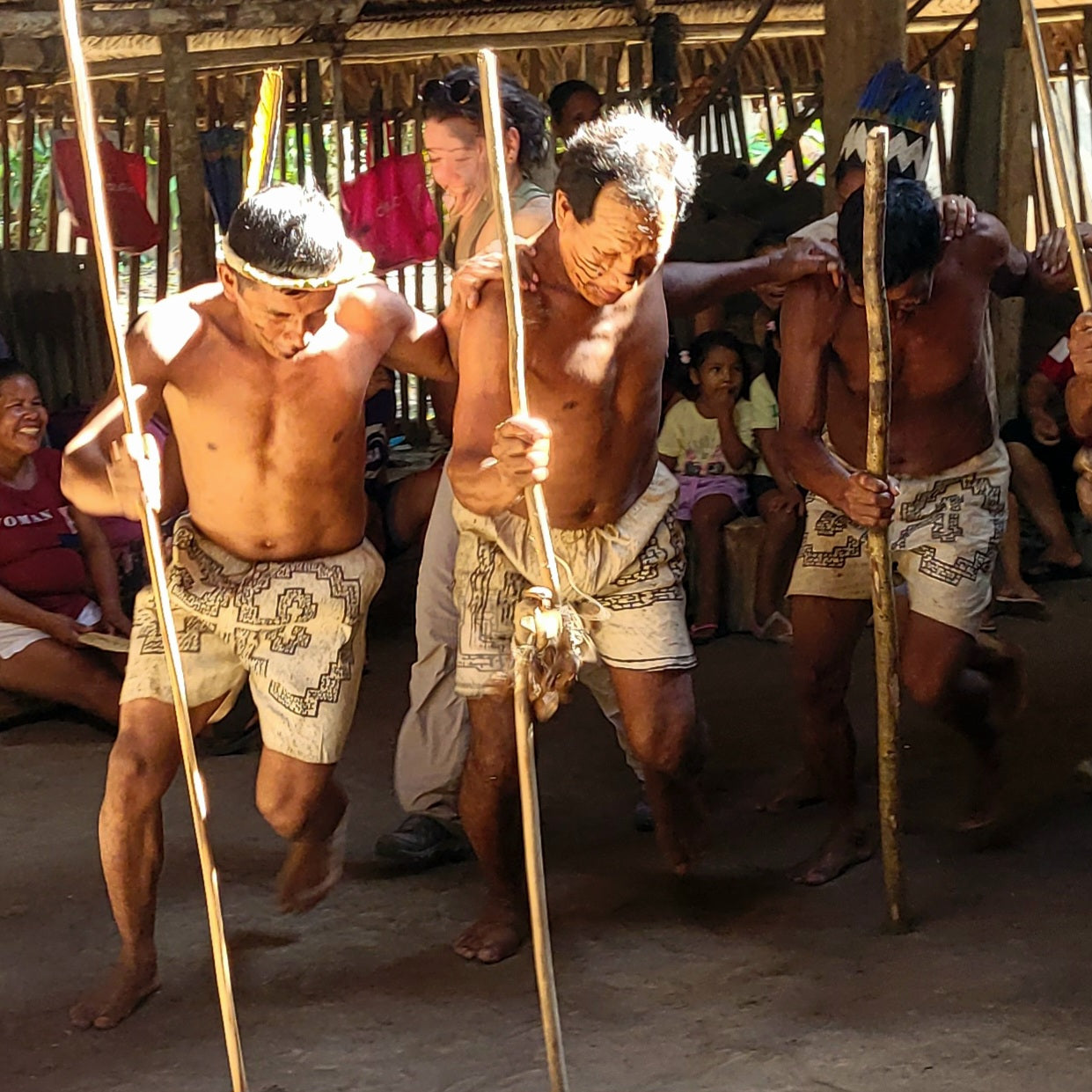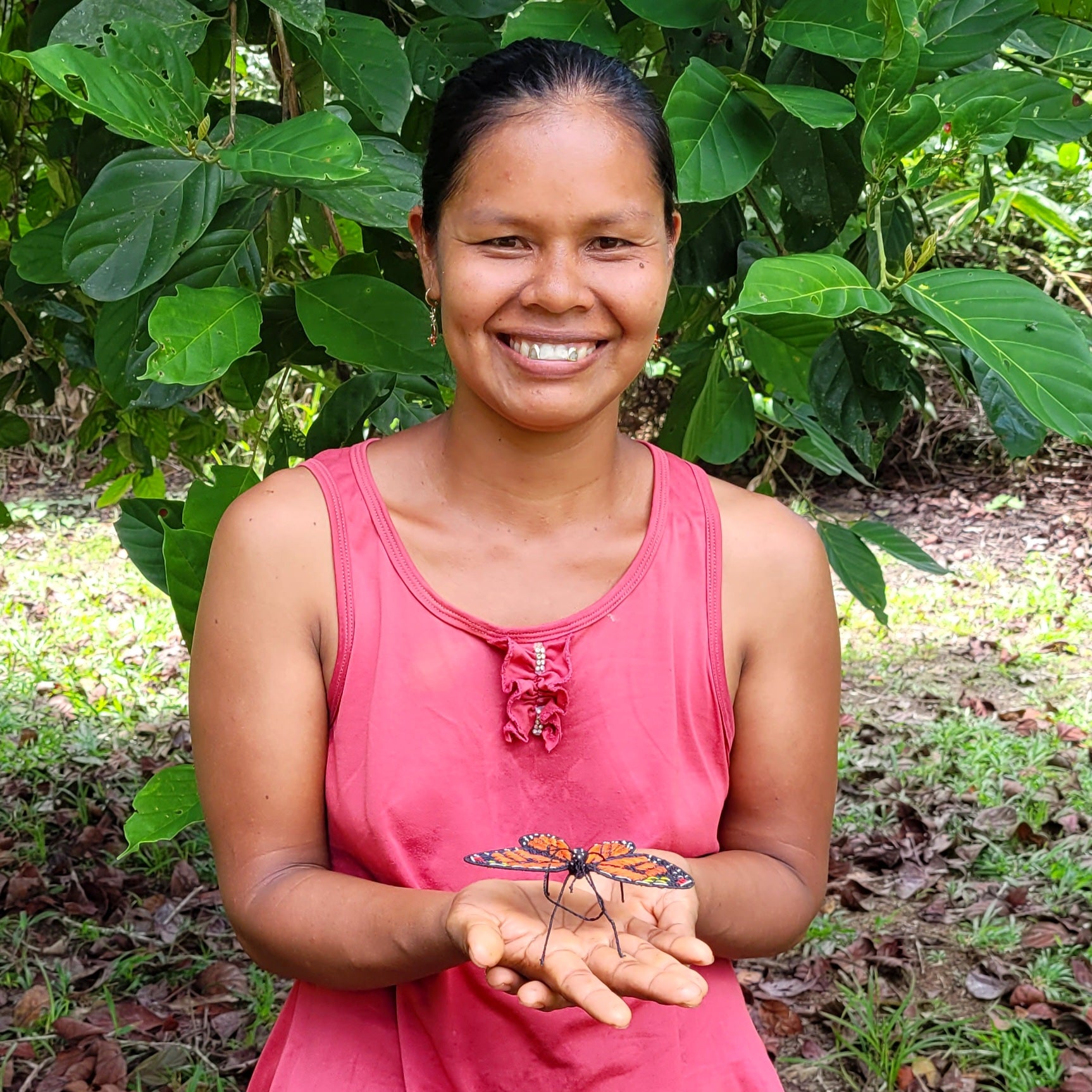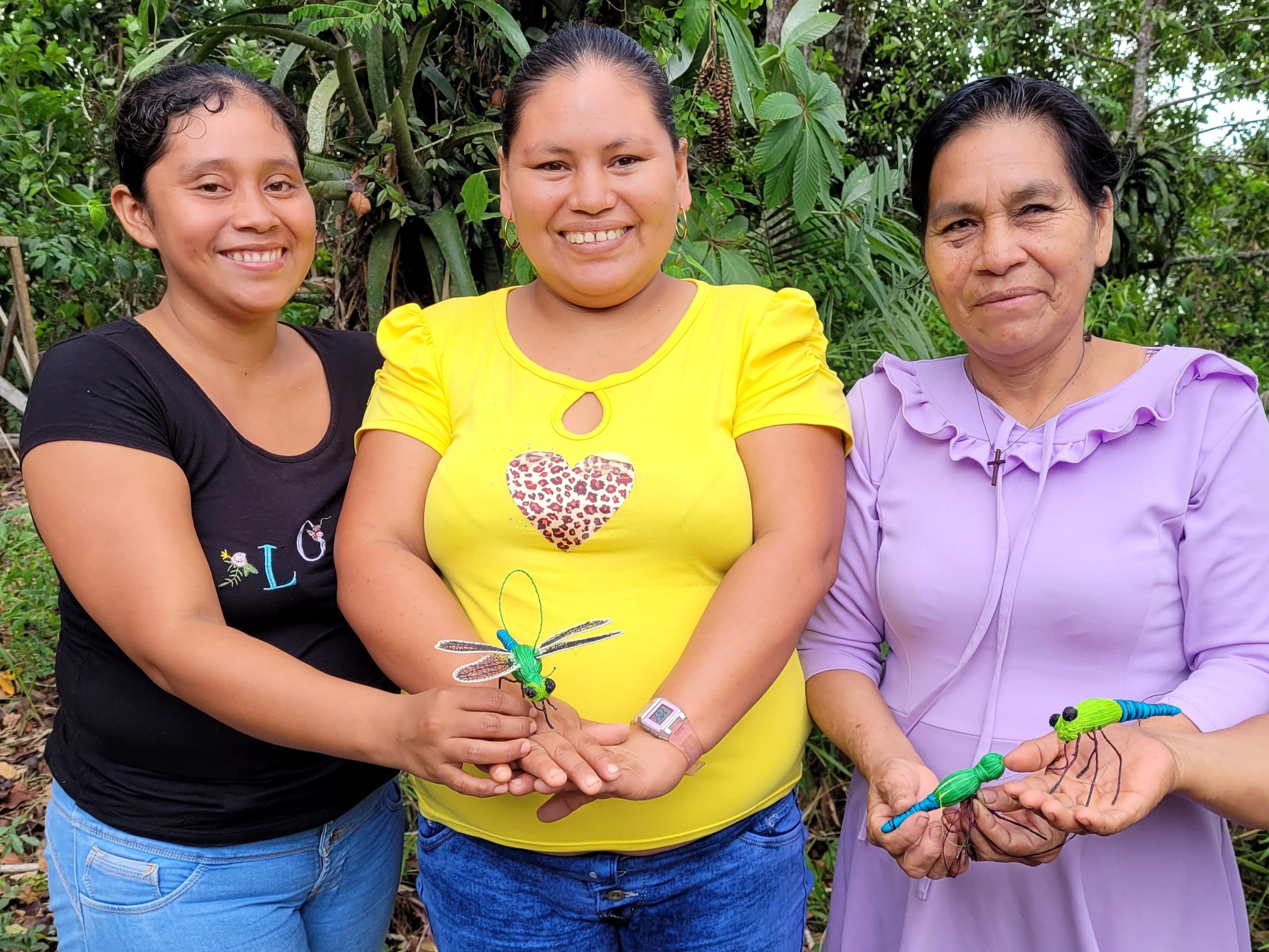This year Amazon Ecology has welcomed a new partnership with Conservation International to support a large part of our work to help artisans in the Ampiyacu region to improve their craft making, organization, and chambira management activities. In October, CI sent leaders from their Iquitos and Lima offices along with a photo/video team to get a first hand look at our work and other projects they were funding in the region. During their visit to Puca Urquillo, they requested that a group from the Bora community share a bit about their culture and crafts in their maloca (traditional meeting house).

Both men and women wore garb made with bleached llanchama tree bark painted with graphic figures from Bora clans. Several wore headdresses made with the feathers from macaws and parrots. They discussed the importance of nature and craft-making in their culture and then launched into a lively dance where the men chanted and pounded sticks into the ground to the rhythm of moving around in a circle. Visitors joined the undulating lines to share the vibrant energy.

After the dance, the visitors toured tables set up by artisans to display samples of their crafts that included chambira woven bags and animal ornaments. The artist Percy displayed many of his paintings featuring jaguars, other jungle animals and creatures from Bora legends done on llanchama tree bark canvas. Some artisans were disgruntled that one group was highlighted in the presentation to a much greater extent than theirs.


After the presentation, I enjoyed watching the curaca Victor Churay play the two giant manguare drums (each one made from a hollowed-out trunk) to demonstrate how people used to communicate important messages to people in the village who might be several miles away. I have known and appreciated Victor as an artisan for many years and regularly bought maracas he made with calabash tree pods and decorated with traditional Bora designs.






